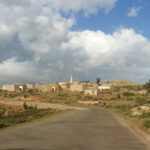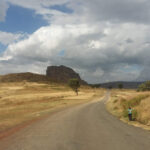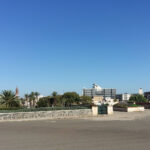In early November 2018, I made a visit to Eritrea for some days. My visit came into being following the ‘peace’ agreement between Abiy Ahmed, the newly elected prime minister of Ethiopia, and Isaias Afewerki, president for life of Eritrea.
I was guiding a group of 5 people, while I was a stranger too. Initially, my plan was to travel alone, but these people came through referral at the right time. I came to Mekelle a bit earlier that month. My guests took a flight with Ethiopian Airlines from Addis Ababa to Mekelle. I’ve to rent a vehicle for the six of us. I did a 105-type Toyota Cobra from a company I frequently use at Mekelle.
We set off early in the morning on November 9, 2018, from Mekelle. We followed the main road through Wukro, Adigrat, Zalambessa, Senafe, Adi Keyih, Segheneyti, Dekemhare to Asmara. Due to many people traveling to and from Tigrai and Eritrea, the road was too busy. You could see all types of vehicles: automobiles, medium and heavy fright ones, lorries, all types. Throughout our journey, we saw Eritrean soldiers making manual amendments for the Italian-made old road. There was a warm vibe of welcoming from most of the people in the towns we crossed.
The border was opened a few days ago after 20 years of no-peace-no-war hostility that resulted from a bloody war that happened from May 1998 to June 2000.
Right after we crossed the border at Zalambessa, there was a checkpoint by the Eritrean police, in a tent setup near to a small town whose ruins from the Ethio-Eritrean war can be clearly seen. We had to present our IDs, get registered, and give details. Then we drove through the beautiful landscape of the Senafe area and then to Adi Keyih. Through many ups and downs, we passed Segheneyti after mid-day. The road was narrow and full of twists, especially from Adi Keyih to Segheneyti. Descending to Dekemhare was somehow easier, but we had to face the afternoon sun which was directly falling on our dashboard. Dekemhare to Asmara was more or less a smooth and relaxed drive.
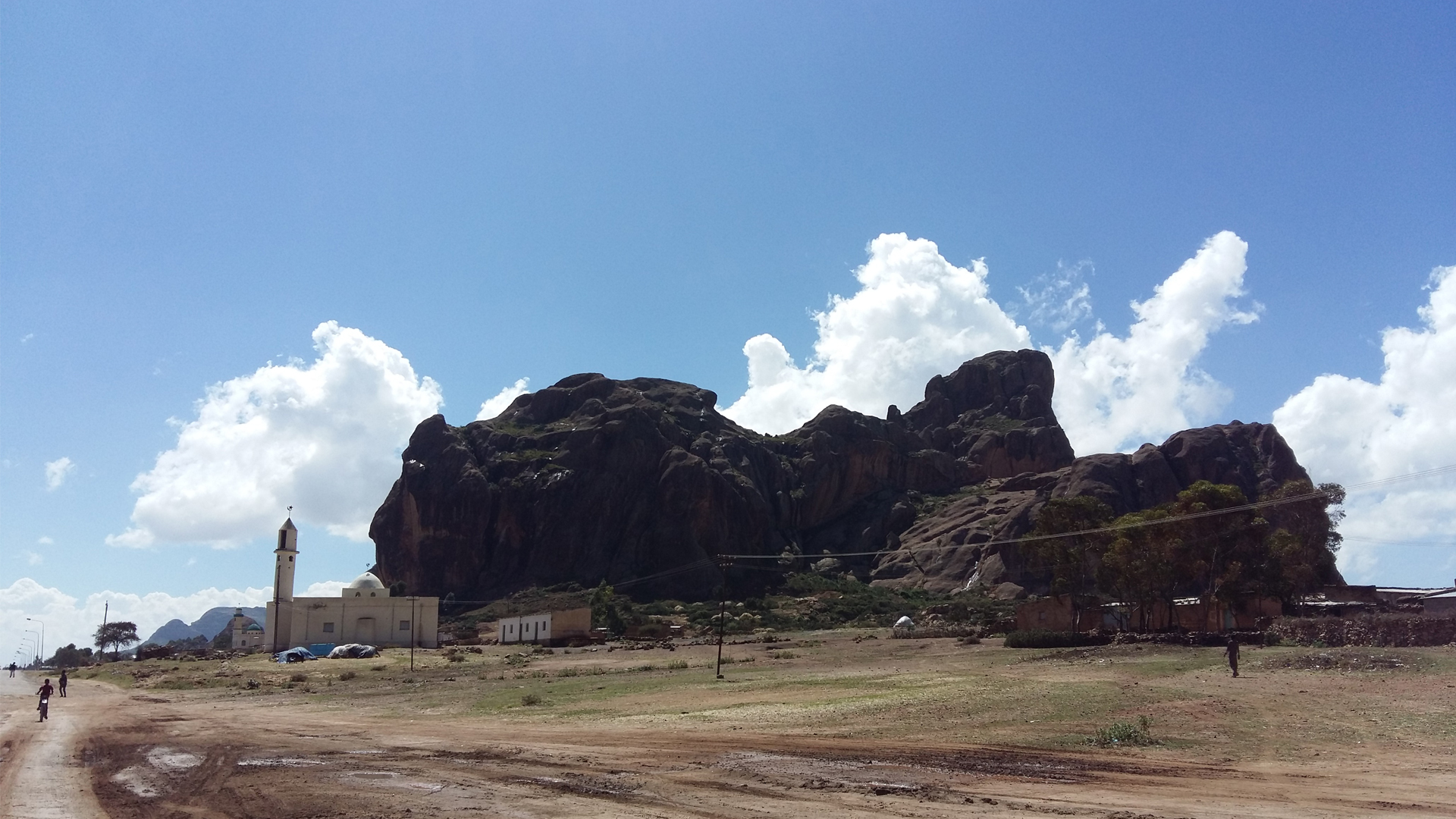
Senafe
On both sides of the road at some intervals, there were small drinking water wells dug and small dams for irrigation. I was impressed by those agricultural works during the dry season. Rain is scarce in those areas, complementary irrigation is a good way to improve productivity.
Although Mekelle to Asmara is 312kms, due to the rough nature of the road, busy traffic, and a minor accident that blocked us for about an hour, it took us almost a full day’s drive.
We arrived in Asmara after the sun almost set. We booked in Khartoum Hotel located in between Cinema Impero and Mai Jahjah. Booking in a hotel wasn’t enough, we had to go to a nearby police station and get registered where we are staying along with many more details.
The young police officer who registered us was too nervous for no reason, he was smoking in the office in front of us and was asking us our names now and then. We couldn’t say anything but just do as ordered.
After having dinner in a restaurant close to the hotel and having some beer. Most of the beers we knew back home were right there, on the table. I was curious to test Eritrean’s only beer, Meloti. But they told me it was already out of stock. Many guests like me prefer to test it and it was completely out of order so early that day.
The way they present the food has some standards better than we do in Ethiopia, but prices are high. We went back to our hotel and had a peaceful sleep, as we were exhausted on the road.
The next day, in the morning, we had breakfast in the hotel and delivered our guests to Asmara airport. While my guests were doing what they came for I had the chance to visit some parts of Asmara.
I also visited a sister of my friend on the outskirts of Asmara. This younger sister of my friend took us to their home at Zagir, far in the north, some 40kms. Foggy highlands of the northern Red Sea can be felt and seen closely. Zagir is a small urban village on a completely deforested red soil land.
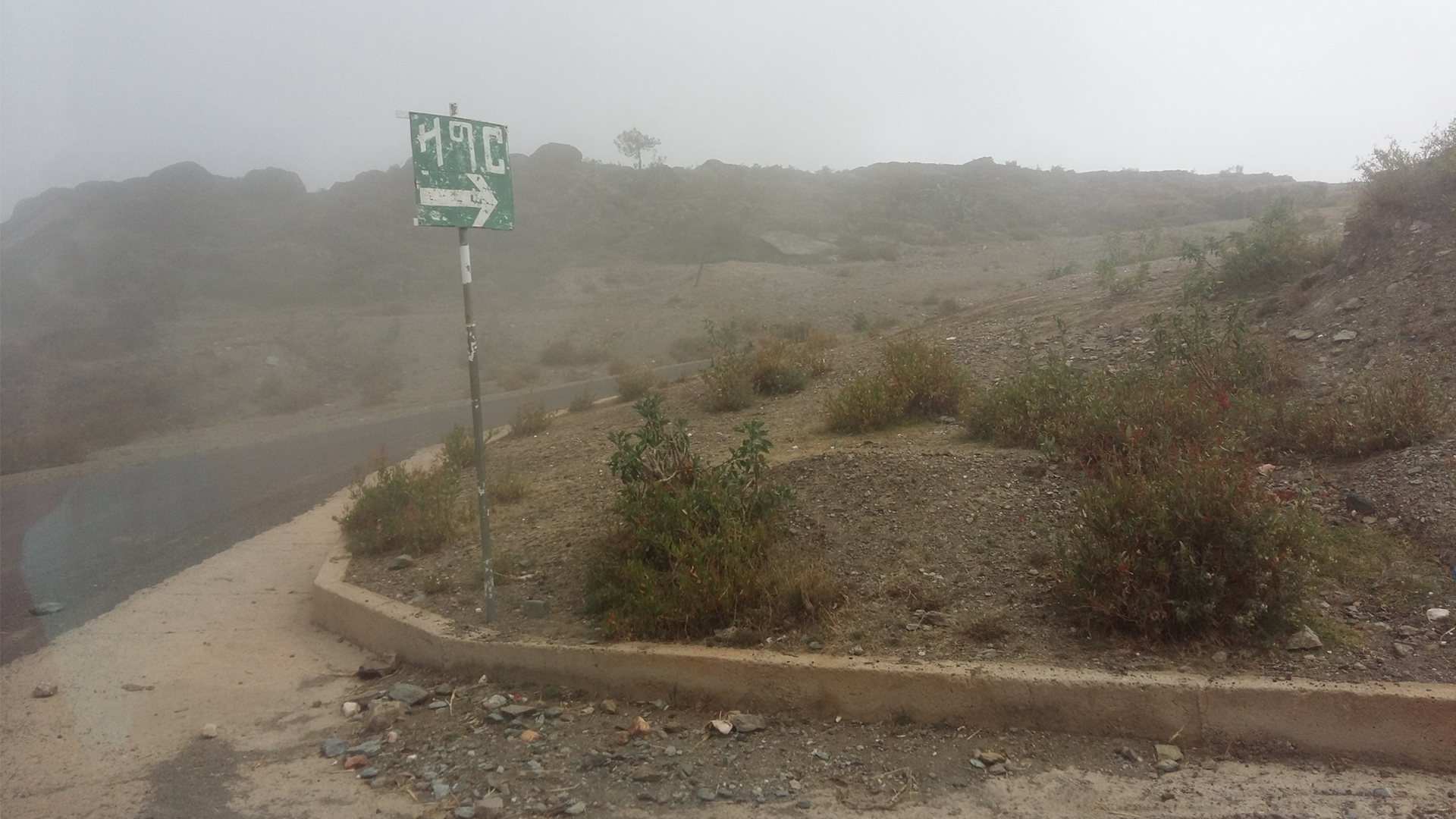
Most of the names of places we crossed on the way have strange names to Tigrigna. We share many common things from landscape to agricultural products, from weather conditions to clear sky, etc.
At Zagir, we reached Enda Aboy Mehari, parents of a friend of mine I know on Facebook, but we feel so close like a family. The way they welcomed us was amazing. I have no words for their hospitality. Their traditional house reminded me of my parents’ house back home. They provided us with cultural foods and drinks. We ate porridge with yogurt, roasted maize, drank coffee and tea. We felt completely home and family. I loved them. I know I expected such a humble family because I know what type of person my friend is. She is really human. And they were the type of people who exceeded my expectations.
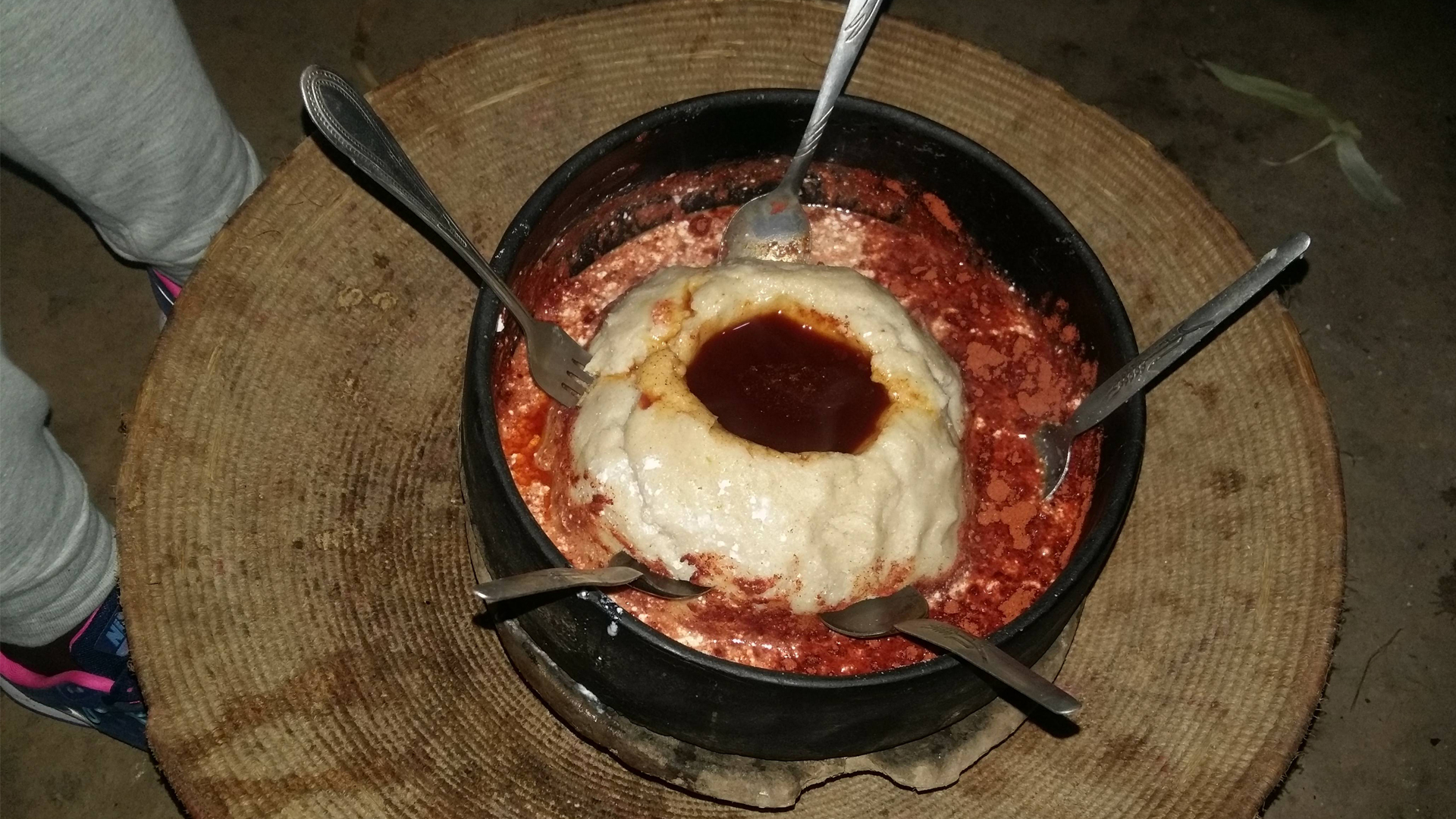
My Views
I know very few days are not enough to prove something right or wrong. But I wanted to pinpoint my observations, as a Tigrian, so that people can get informed and further dig out by themselves about Eritrea and Eritreans whom I came across in those few days.
Most of the people I talk to don’t complain much about the regime as we do. In fact, they feel the opposite. They are proud of their president and happy about the ‘changes’, including those in the military service.
Isayas seems much more hated by Ethiopians (especially Tigrians) than by his own people. I don’t know why. I personally used to hate him, because I thought he killed Eritrea and the Eritreans. But that’s wrong, I can’t be a more perfect witness to their lives than they do themselves.
In fact, there are obvious reasons for me and for us Tigrians in general to say that. Several hundreds of Eritreans are forced to serve an indefinite national military program at a slavery-like condition, hundreds of thousands have escaped this slavery to Tigrai and are living in three big refugee camps. Tens of thousands have been killed crossing the border or arrested and thrown to jail by their own soldiers. There is no press freedom, no political party, no election, no constitution, etc.
Given these and other conditions, there is no hesitation that the Eritreans live under dictatorial leadership. And the way they speak good things about the regime and their leader is due to a tight spy network. This is from fear of arbitrary arrest, extrajudicial sentences, torture, and all kinds of inhumanities.
Eritrea has not changed much since its independence from Ethiopia. Almost all of the landmarks, infrastructures, industries, etc I saw are fingerprints of the Italian colonial system. Many Eritreans however, still believe that sovereignty accounts for each other would be physical development, and it was achieved by the current government.
Asmara is clean and neat with a beautiful international standard design. The rural villages are also very clean, organized, and in place. Streets are wide, labeled, and trees are planted along the sides. There are no banners, commercials, etc in the cities and towns messing with pedestrians. Everything is in place.
If you happen to be in the Kebelles’ of 16, Mekelle or 22 of Addis Ababa, or other parts of Tigrai or Ethiopian cities, music is played out loud in the streets, and you can’t differentiate between a bar and a boutique. Whereas in Asmara, you don’t hear any noise disturbing outside of the bar or shop.
Eritreans:
They are extremely nationalist, honest, very cooperative, respectful, and friendly. If you stop at a point to ask for directions, everybody will stop, listen to you and direct you until they made sure you completely understand where to go. In Ethiopia, many people will not give a shit and will not kill a minute to listen to your inquiry.
Unlike Ethiopia, where the streets are full of beggars and shoe shiners, no one will bother you in Asmara. When you like to have your shoes clean, you can go to where they are. In Mekelle, a new passerby shoeshiner will ask you every other minute. Sometimes, they will push your patience by asking you to do an already shining shoe.
On the road, although drivers are extremely impatient, they respect zebra and other basic traffic rules. There are few vehicles in the capital relative to Tigrai’s major cities.
Another amazing thing is, Eritreans respect the law. They may not feel comfortable with some laws imposed on them, but they will still respect them. Don’t do’s are just don’t do’s. They don’t even question or argue. In Tigrai, as long as the police are not seeing, many people courageously break the rule.
The bad things:
Smoking: It’s very hard and a very rare phenomenon to find a non-smoker. Unlike Mekelle, where smoking is forbidden in public areas, it’s normal to smoke in Eritrea, even at workplaces where there are customers, or at home where there are kinds. It’s common to see teenagers smoking in cafes, restaurants, hotels, etc. While you may stare at them strangely, they will not give a shit.
Drinking: Drinking and getting drunk is another free bonus to enjoy. Most youngsters prefer drinking to eating. No limits, drink and get drunk. You can see drunk people staggering on the streets. It’s common to see drunk people insulting taboo things to each other, but they will not fight. Finding yourself in jail is a certain process to die slowly.
Sex: Sex is not a bad thing. But in Eritrea, it’s common even at underages. It’s such a common thing to see young Eritrean girls having kids. Kids for themselves becoming single mothers. I’ve heard that giving birth keeps them illegible from the indefinite national services.
Insult: Young or adult, the Eritreans seem to have specialized in insulting. Bad words, taboo saying, there is no limit in insulting in a minor misunderstanding. I’ve tested my vocabulary with their words. It’s disgusting to hear their words in public.
No SIM Card: It’s hard to find a SIM card for the Eritreans themselves. As a traveler, you can’t think of having one. It’s not allowed. If you know someone who is highly privileged to own dau-SIM and they gave you one, you can only find one type of rechargeable card, 110 NKF. There are no options like the 5, 10, 15, 25, 50, 100, etc birr cards in our case. No other option to recharge your balance.
Although I still wanted to do more travels in Eritrea, I was afraid of moving to more remote places due to economic and time constraints and the still fresh hostility that had happened less than a decade years ago. During the days I spent in Eritrea, their president was in Ethiopia, making visits in Hawassa. Helen Meles, one of Eritrea’s prominent female artists, was also in Mekelle, Bahirdar, and Gondar doing friendship music concerts.
I traveled much of Asmara, Karen, Zagir, Massawa, parts of Debre Bizen, and all the towns in between Asmara and Zalambesa. When I got a good time to write more about my stay in Eritrea, I’ll be back with my experiences at Keren, Massawa, and all the long drives.
We drove back to Mekelle, Tigrai, enjoying the white clouds on the blue sky and the beautiful landscapes extending from Eritrean highlands to Eastern Tigrai.

